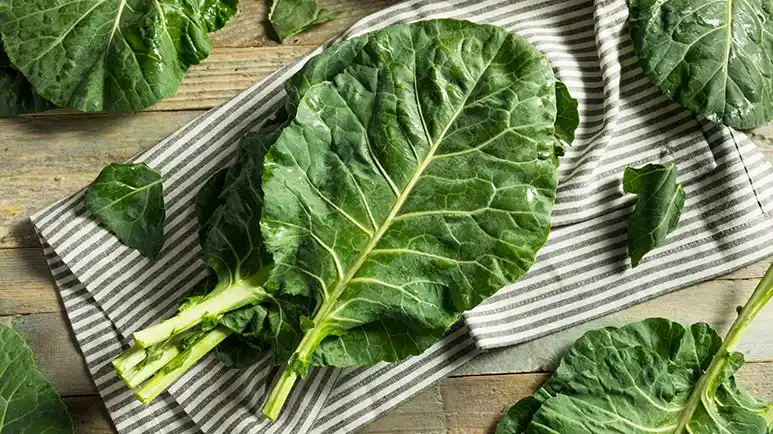madtechventures.com – Collard greens, a leafy green vegetable related to kale and cabbage, have been a staple in many cultures for centuries. With their dark green leaves and slightly bitter flavor, collard greens are packed with essential nutrients that contribute to overall health and well-being. In this article, we will delve into the nutritional profile of collard greens, explore their various health benefits, and discuss how to incorporate them into your daily diet.
Nutritional Profile of Collard Greens
Collard greens are a nutritional powerhouse, offering a wide range of essential vitamins, minerals, and antioxidants. Here’s a breakdown of its key nutrients:
- Vitamin K: Essential for blood clotting and bone health.
- Vitamin A: Important for vision, immune function, and cell growth.
- Vitamin C: A powerful antioxidant that boosts the immune system.
- Folate: A B-vitamin crucial for cell growth and development, particularly important during pregnancy.
- Calcium: Essential for strong bones and teeth.
- Potassium: This mineral helps regulate blood pressure and supports heart health.
- Fiber: Collard greens are a good source of dietary fiber, which aids in digestion, promotes satiety, and helps regulate blood sugar levels.
- Antioxidants: Collard greens contain various antioxidants, including sulforaphane, which has been linked to cancer prevention.
Health Benefits of Collard Greens
-
Improved Digestion:
- The fiber in collard greens promotes healthy digestion by adding bulk to stool and preventing constipation.
-
Heart Health:
- The potassium in collard greens helps regulate blood pressure and reduce the risk of heart disease.
- The fiber in collard greens can help lower cholesterol levels.
-
Strong Bones:
- The vitamin K and calcium in collard greens support bone health, reducing the risk of osteoporosis.
-
Boosted Immune System:
- The vitamin C in collard greens helps strengthen the immune system by combating harmful free radicals.
-
Cancer Prevention:
- The sulforaphane in collard greens has been linked to cancer-fighting properties, particularly in the prevention of certain types of cancer.
-
Blood Sugar Control:
- The fiber in collard greens can help slow down the absorption of sugar into the bloodstream, helping to regulate blood sugar levels.
Incorporating Collard Greens into Your Diet
Collard greens can be enjoyed in a variety of ways. Here are some ideas to incorporate them into your daily diet:
- Sautéed Collard Greens: Sauté collard greens with garlic and olive oil for a quick and easy side dish.
- Collard Green Soup: Add collard greens to soups and stews for a boost of flavor and nutrients.
- Collard Green Smoothies: Blend collard greens with fruits and yogurt for a nutritious and delicious smoothie.
- Collard Green Wraps: Use collard green leaves as a low-carb wrap for sandwiches and burritos.
- Collard Green Stir-Fry: Add collard greens to stir-fries for a flavorful and nutritious meal.
Conclusion
Collard greens, a nutrient-dense leafy green, have earned their reputation as a superfood. By incorporating them into your diet, you can reap the benefits of their essential nutrients and contribute to overall health and well-being. So, next time you’re looking for a healthy and flavorful addition to your meals, consider the mighty collard green.
